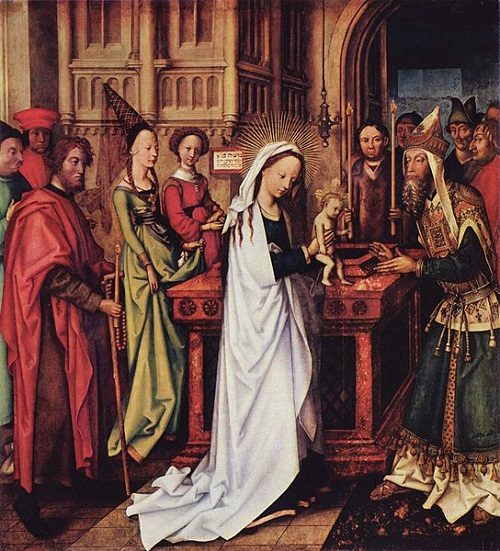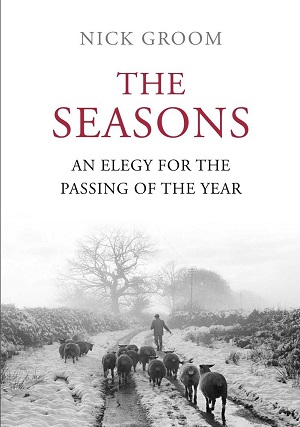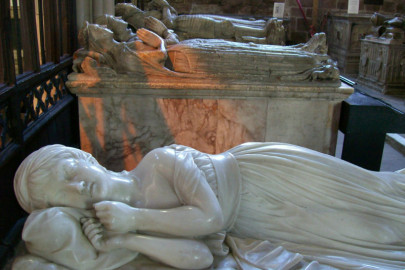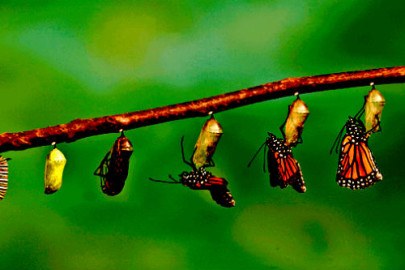Professor Nick Groom’s book The Seasons: An Elegy for the Passing of the Year is a celebration of the English seasons and the trove of strange folklore and often stranger fact they have accumulated over the centuries. Following his Christmas post for The Dabbler, Nick turns his attention to February…
All the months in the year curse a fair Februeer.
February is cold and grim – in fact the colder and grimmer the better as warm and wet Februaries mean that bad weather for the remaining year is certain. So it was with satisfaction that I went out into the snow on Saturday morning – a light snow, but snow nonetheless. After the wettest January on record, I hoped that we could look forward to a balmy spring and an unclouded summer. But since then we’ve had wild storms followed by sparkling sunshine and showers. Good for rainbows, but dire for the rest of the year.
There is less of February than other months – February being the shortest as it was the favoured hunting ground for Roman emperors looking to extend other months to honour themselves or their predecessors. It is also the only month in the Christian year that has an intercalary day – an extra day added every so often to keep the calendar in harmony with the solar year. Leap years are not quite as regular as every four years, as no extra day is added in years divisible by 4 and 100 but not by 400 – so the end-of-century years 1800 and 1900 were not leap years, although the last year in the millennium, the year 2000, was a leap. Traditionally, St Matthias’ Day (24 February) was the leap day, and accordingly counted twice every four years. That makes it a good day for second chances – to do all those things you have been putting off.
The first of February is Candlemas Eve and is the right time to take down the sprays of greenery that have decorated the house since Christmas Eve. As the Cavalier poet Robert Herrick wrote in the seventeenth century, ‘Down with the Rosemary and Bayes, / Down with the Mistelto’. The beginning of February is further confirmation that spring is coming in the teeth of the icy weather. Snowdrops traditionally appear on Candlemas (2 February) and Candlemas itself celebrates ablution and cleansing associated with the Virgin Mary in preparation for the coming year; it is traditionally celebrated with candles being carried into church. This year is the one-thousandth anniversary of the first mention of Candlemas in 1014, which presents an opportunity to us to make it our own and turn it into a communal festival of purification. Something as simple as picking up litter can connect you with a tradition at least a thousand years old, as well as improving your immediate environment. I spent the day engaged in futile attempts to persuade my children to tidy their bedrooms for a change….
The days noticeably lengthen in February (‘two cocks’ strides’), dawn recedes and the twilight gradually comes later. The flowers and the birds wake up: daffodils bloom on the Feast of St Peter’s Chair (22 February), and birds traditionally start singing on the 12 or 13 of the month, and find their mates on the 14th – so listen out for renewed birdsong. And the 14th is also of course St Valentine’s Day, now the most commercialized saints’ day in the calendar. Why St Valentine has become such a matchmaker no-one really knows. None of the two or three saints Valentine have much to do with falling in love or sending saucy billets doux, and the association of the day may simply be through the folklore of mating birds. It could, however, be a remote cultural memory of the Roman fertility festival of Lupercalia, held at this time. For the Lupercalia, men would strip and wear wolf masks, dashing about and waving strips of goatskin, and obviously any woman who desired to conceive a child would ensure that she was struck by one of the skins. Some identify English Morris Dancing and the powers of the Hobby Horse with this harmless ritual of bestiality, nakedness, and random flagellation. Perhaps it is no surprise that the seventh-century bishop St Isidore, the ‘last scholar of the ancient world’, invented the pagan god Februus, lord of the underworld, to account for the name of the month.
The English Feast of St Valentine seems originally, however, to have been a day for bonding customs among friends, each drawing a valentine by lots. Gradually it became less communal and more about pairings, until it eventually became the jamboree of coupledom familiar to us today. Every newsagent will be purveying ribald cards, every florist will be delivering armfuls of roses, and every restaurant (and most pubs) will be hosting ‘magical’ candlelit dinners. The age of romance is clearly not dead, if one’s pockets are deep enough…. Perhaps the only remnant of early Valentine customs that remains is the anonymity of cards and flowers, which of course nine times out of ten is an open secret, although on the other hand unpalatable little customs such as eating a boiled egg full of salt to inspire dreams of one’s future spouse have prudently lapsed. Among all this palaver perhaps it is worth remembering that Valentine Eve, 13 February, was traditionally the day on which Hell was created.













Some identify English Morris Dancing and the powers of the Hobby Horse with this harmless ritual of bestiality, nakedness, and random flagellation.
Ah, so that’s the motivating factor and what then, one enquires, follows their post dance routine…..two halves in the pub, standing in a circle whilst the locals stare pityingly at them.
“Valentine Eve, 13 February, was traditionally the day on which Hell was created.”
good fact to know!
also – surely any mistletoe still hanging around from christmas would surely just be a black withered mess by now?